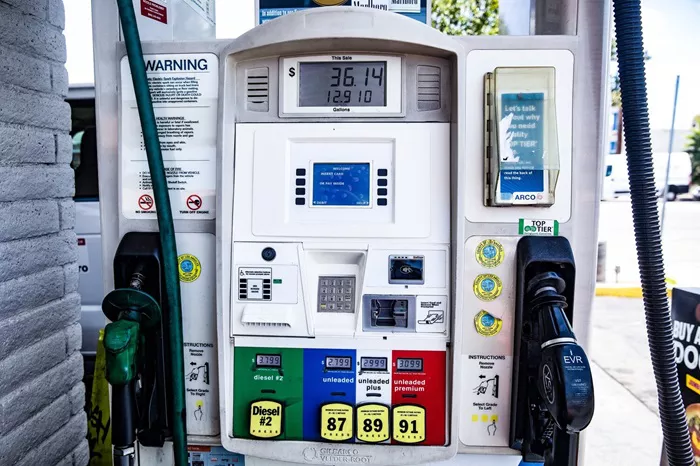Gasoline is a vital part of daily life for many people. It powers cars, trucks, and other vehicles. However, not everyone understands the different types of gasoline available. This article will explore the various gasoline types and their uses.
Regular Unleaded Gasoline
Regular unleaded gasoline is the most common type of fuel. It is suitable for most vehicles. This gasoline has an octane rating of 87. The octane rating measures the fuel’s ability to resist knocking during combustion. Knocking can damage the engine. Most cars are designed to run on regular unleaded gasoline.
Mid-Grade Gasoline
Mid-grade gasoline is less common. It has an octane rating of 89. This type of gasoline is often recommended for vehicles with high-performance engines. Some cars can run on regular unleaded gasoline, but they may perform better with mid-grade fuel. Mid-grade gasoline can also help prevent engine knocking.
Premium Gasoline
Premium gasoline has the highest octane rating. It is usually rated at 91 or higher. High-performance and luxury vehicles often require premium gasoline. This fuel helps these engines run more efficiently. Premium gasoline can also improve acceleration and fuel economy. However, it is more expensive than regular or mid-grade gasoline.
Ethanol-Blended Gasoline
Ethanol-blended gasoline contains ethanol, a type of alcohol made from corn or other plant materials. There are several types of ethanol-blended gasoline:
E10: This blend contains 10% ethanol and 90% gasoline. It is the most common ethanol blend in the United States. Most vehicles can run on E10 without any modifications.
E15: This blend contains 15% ethanol. It is approved for use in vehicles made after 2001. However, not all vehicles can use E15, so it’s essential to check the owner’s manual.
E85: This blend contains 85% ethanol. It is used in flexible-fuel vehicles (FFVs). These vehicles are designed to run on gasoline, E85, or any mixture of both.
Ethanol-blended gasoline can reduce greenhouse gas emissions. It can also lower fuel costs. However, ethanol has a lower energy content than gasoline. This means that ethanol-blended gasoline may reduce fuel economy.
Non-Ethanol Gasoline
Non-ethanol gasoline, also known as pure gasoline, does not contain ethanol. Some drivers prefer this type of gasoline because it can improve fuel economy and engine performance. Non-ethanol gasoline is often used in boats, motorcycles, and small engines, such as lawnmowers. However, it is usually more expensive than ethanol-blended gasoline.
See also: What Type Of Plastic Can Withstand Gasoline?
Racing Fuel
Racing fuel is a high-octane gasoline designed for high-performance racing engines. It is not suitable for regular vehicles. Racing fuel can have an octane rating of 100 or higher. It is used in motorsports to maximize engine performance. Racing fuel is typically only available at specialized retailers.
Avgas (Aviation Gasoline)
Avgas is a type of gasoline used in small aircraft. It has a high octane rating to prevent engine knocking at high altitudes. There are two main types of avgas:
100LL: This stands for 100 octane low lead. It is the most common type of avgas.
UL94: This is a lead-free alternative to 100LL. It is becoming more popular as concerns about lead pollution grow.
Avgas is not suitable for cars or other ground vehicles. It is specifically formulated for aviation engines.
Understanding Octane Ratings
The octane rating is a crucial factor in choosing the right gasoline for your vehicle. Higher octane fuels resist knocking better. However, using a higher octane fuel than your car requires does not necessarily improve performance. Always refer to your vehicle’s owner’s manual to determine the recommended octane rating.
Environmental Impact of Gasoline
Gasoline consumption has significant environmental impacts. Burning gasoline releases carbon dioxide (CO2), a greenhouse gas that contributes to climate change. It also produces other pollutants, such as nitrogen oxides and particulate matter, which can harm air quality and public health.
Reducing Environmental Impact
There are several ways to reduce the environmental impact of gasoline:
Use Ethanol-Blended Gasoline: Ethanol is renewable and can reduce greenhouse gas emissions.
Drive Fuel-Efficient Vehicles: Vehicles with better fuel economy use less gasoline, reducing emissions.
Maintain Your Vehicle: Regular maintenance can improve fuel efficiency and reduce emissions.
Drive Responsibly: Avoiding rapid acceleration and excessive idling can save fuel.
Alternatives to Gasoline
As concerns about the environmental impact of gasoline grow, alternatives are becoming more popular. Some of these alternatives include:
Electric Vehicles (EVs): EVs run on electricity and produce no tailpipe emissions. They can be charged at home or at public charging stations.
Hybrid Vehicles: Hybrid vehicles use a combination of gasoline and electric power. They can reduce fuel consumption and emissions.
Hydrogen Fuel Cell Vehicles: These vehicles produce electricity through a chemical reaction between hydrogen and oxygen. The only byproduct is water vapor.
Biofuels: Biofuels are made from renewable resources, such as plant materials. They can be used in place of or in combination with gasoline.
Conclusion
Understanding the different types of gasoline is essential for making informed choices about fuel for your vehicle. Whether you drive a high-performance car, a flexible-fuel vehicle, or a standard sedan, there is a gasoline type that meets your needs. By choosing the right fuel and considering alternatives, you can help reduce your vehicle’s environmental impact.
Related topics:
Unleaded And Special Gasoline: What Is The Difference?

